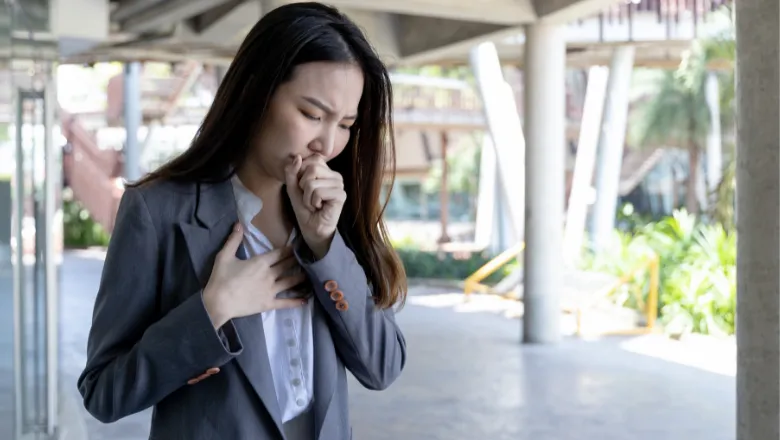We observe a different clinical presentation of symptoms in those infected with Omicron compared to Delta. As we are moving even further away from the average patient having UK government ‘core’ symptoms i.e. fever, persistent cough, loss of smell, our results point to a different selection of symptoms that may indicate infection. To protect others, it is still important to self-isolate for five days as soon as you see any symptoms.”
Dr Cristina Menni, King’s College London
07 April 2022
Symptoms of Omicron less severe than the Delta variant
People infected with Omicron are more likely to have a sore throat and less likely to experience loss of smell compared to Delta, a new study has found.

Researchers also found this variant of SARS-COV-2 has a lower risk of hospitalisation and a shorter duration in the vaccinated population than previous variants.
Researchers from King’s College London and scientists from ZOE studied the symptoms of 62,002 vaccinated UK participants from the ZOE COVID Study App who tested positive between 1 June 2021 and 27 November 2021, when Delta was dominant, and from 22 December 2021 to 17 January 2022 when Omicron was dominant. The findings, published today in The Lancet, show the duration of symptoms were also significantly shorter for Omicron compared to the Delta variant, (6.87 days versus 8.89 days) and participants were less likely to be hospitalised.
The most striking difference between variants was the difference in loss of sense of smell, a common symptom of earlier variants- appearing in 52.7% of Delta cases, only appears in under 20% of Omicron cases and often days later. The two symptoms that were consistently more prevalent among Omicron than Delta cases (regardless of vaccination status) were a sore throat and hoarse voice. Moreover, many debilitating symptoms, such as brain fog, eye burning, dizziness, fever, and headaches, though still occurring, were all significantly less prevalent in Omicron cases.
Researchers note that symptoms associated with an Omicron infection have less involvement of the lungs and do not last as long in vaccinated people.
Since emerging in December 2021 Omicron has spread in over 80 countries and has become the dominant COVID-19 variant in the UK, overtaking the previously dominant Delta variant. Early reports, for instance, a recent study from South Africa indicated that the Omicron variant was significantly less severe than the previous dominant variants, with lower rates of hospital admission. However, our study is larger, population based and the most detailed so far.
Tim Spector, Lead Scientist on the ZOE COVID Study and Professor from King’s College London said: “It’s an amazing scientific feat that barely a few months since Omicron took hold in the UK, the teams at King’s College London and ZOE have been able to produce rapid conclusive answers to these key clinical questions on symptom and severity. It’s thanks to loyal contributors to the ZOE COVID Study app that ZOE continues to be able to provide data on a scale not seen before the pandemic, cementing the Study and it’s methodology as one of the best ways to track this pandemic and any future ones.”
Although there is still a wide-range of duration and severity of symptoms with Omicron, for vaccinated individuals we find on average a shorter duration of symptoms. This suggests that the incubation time and period of infectiousness for Omicron may also be shorter.”
Professor Ana Valdes, Honorary Professor at King's College London
“Once again the ZOE COVID study demonstrates, at a proof-of-concept scale, that citizen science can provide proactive information for minimal costs. This study demonstrates a culmination of two years of research in a public and private partnership that has revolutionised citizen science and demonstrated the power of big data and computational modelling to tackle a major health issue. I strongly believe that many people felt a direct positive benefit from their personal contribution towards the fight against COVID-19, and that the future of public health reporting via apps like the ZOE COVID Study has the potential to revolutionise citizen participation in actionable healthcare science research.”
Professor Sebastien Ourselin, Professor of Healthcare Engineering, School of Biomedical Engineering & Imaging Sciences


